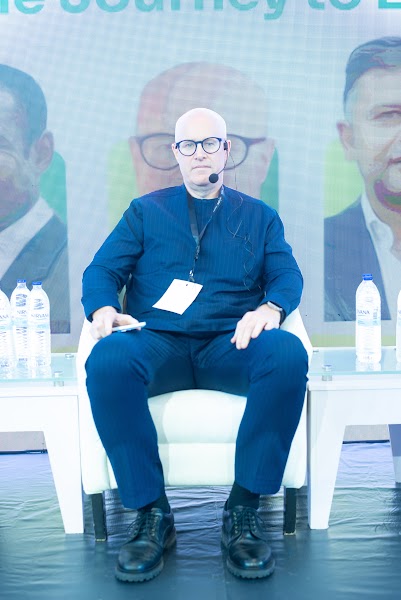Nigeria’s surging demand for cloud and artificial intelligence (AI) infrastructure has pushed MTN’s new Dabengwa Data Center to full capacity within months of its launch — a development industry leaders say underscores the continent’s accelerating digital transformation.
The Dabengwa Data Center, commissioned earlier this year in Lagos, represents MTN’s latest investment in Africa’s growing data economy. The facility, which houses open colocation components and advanced infrastructure for high-density workloads, has already reached full occupancy on its available components.
“Demand has outpaced supply,” said Roger Shutte, General Manager, Infrastructure & Cloud Engineering at MTN Nigeria, during the Hyperscalers Convergence Africa conference held in Lagos. “We can confirm that we have fully committed our ground floor.”
According to Shutte, MTN’s new-generation data centers are being designed to handle the next wave of AI and cloud workloads, featuring higher rack densities and improved energy efficiency. “We’re seeing hyperscalers and enterprises looking to host workloads locally, especially as data sovereignty policies take hold across Africa,” he said. “The challenge is building fast enough – and with the power and cooling systems to sustain it.”

Data center demand in Nigeria has risen sharply in the past two years, driven by fintech adoption, AI experimentation, and the repatriation of cloud workloads from overseas servers. Shutte noted that MTN is already migrating several of its AI use cases – 17 in total – from Europe into its Nigerian facilities.
“The learning journey has shortened dramatically since November 2022,” he said. “What used to take 18 months to build as a minimum viable product now takes me an evening. The real challenge now is deployment – the infrastructure must be ready to keep up with that speed.”
Analysts say MTN’s rapid uptake mirrors a wider continental trend. Africa’s total data center capacity – currently estimated between 1.5 and 1.6 gigawatts — is expected to triple by 2030, with Nigeria, Kenya, Egypt, and South Africa leading growth.
Guy Zibi, Managing Partner at Xalam Analytics, said the rush to build capacity is only the beginning. “If Africa captures even half a percent of global data-center power demand by 2030, that’s over one gigawatt of new infrastructure needed,” he said. For many, this indicates that once capacity comes online, it gets consumed immediately.
The discussion took place during Hyperscalers Convergence Africa 2025, a flagship digital infrastructure summit convened by Africa Hyperscalers, which brought together senior executives, policymakers, investors, and technology leaders from over 15 countries to explore Africa’s readiness for large-scale cloud, data center, and AI infrastructure.
The event was convened by Africa Hyperscalers and sponsored by Nokia, Open Access Data Centres (OADC), IHS Towers, Vertiv, Equinix, and the National Information Technology Development Agency (NITDA).
Ready to dive deeper into the hyperscale revolution impacting Africa?
READ MORE HERE: www.africa.hyperscalers.news
Contact Us:
Email: projects@hyperscalers.news
Phone: +2348109003350
Follow us on Social Media: Instagram, Facebook, LinkedIn, x




